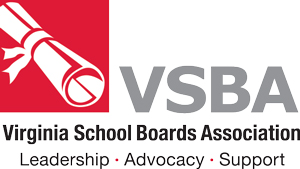To Adopt Legislative Priorities, Or Not?

When advocating for changes in public policy, the road to success is often met with many roadblocks that halt the pace of legislation. Our system of government was intentionally designed by our founders to proceed deliberately slow in this process. Despite the difficulties encountered in policy process, having a plan, and making a request for change is a necessity if you are ever to see your intended result. A strategy to reach success in policy change may consist of adopting legislative priorities for your school division.
I am often asked by board members if they should adopt legislative priorities that are specific to their individual school divisions? There is no silver bullet answer to this question, but each board may find it beneficial to have discussion within the collective body as to whether adopting legislative priorities is a good approach to embark upon.
To decide whether adopting legislative priorities is a good tactic for your board, let us begin with a definition. I define legislative priorities as a set of specific goals adopted by a board or organization that serve as a playbook for lobbying/advocacy efforts during a legislative session. Legislative priorities can either be in support or opposition to efforts to change a particular law or regulation.
With the beginning of a new school year, there is no better time for your board to begin focusing on legislative advocacy efforts, which may include adoption of legislative priorities. Even if this action is not taken by the board, reviewing needs and potential requests for legislation will assist in dialogue between division leadership and your local delegation.
If your board decides to proceed with adopting local legislative priorities, you may wish to follow these strategies during the process.
- What are the issues? Identifying your issue(s) is the first step in the process. Is the issue a capital need? Does it require a new law or a change in existing code? Can a solution come locally, or does it require a legislative or regulatory action from another body at either the federal or state levels of government? These considerations must be part of any adoption process because they will drive all advocacy efforts.
- Are the issues of direct importance to your Board or the entire association? (i.e.: Does VSBA have an official position on the issue?) The VSBA Board of Directors adopts tentative legislative priorities consistent with the positions of the association at their August meeting and approves a final set of legislative priorities at the December meeting prior to the beginning of the legislative session of the Virginia General Assembly in January. The Association’s lobbying efforts are based on positions contained in the VSBA Legislative Positions Handbook that is approved each year by the VSBA Delegate Assembly. Local school boards are not bound to this handbook and can adopt local positions on legislation and policy.
- Use data from your division: Data helps policymakers develop an understanding of the issue you are seeking to tackle and helps to provide context for the policy change that you are attempting to bring resolution. Data will assist in shaping your goals and objectives as you advocate for your priorities.
The strategies I have provided are a starting point along this process. For a variety of reasons, not all boards will find adopting legislative priorities a strategy to advance their advocacy efforts. However, if your board is interested in a discussion about adopting legislative priorities, I encourage you to contact me if you feel I can be of assistance in such a venture, or if you need help in planning advocacy efforts within your division. Please do not hesitate to reach out to me by calling me at the VSBA office at (434) 295-8722 Ext. 116, or by email jason@vsba.org. I wish you all the best in your 2022-2023 advocacy efforts and thank you for everything you do on behalf of public school children in the Commonwealth!
